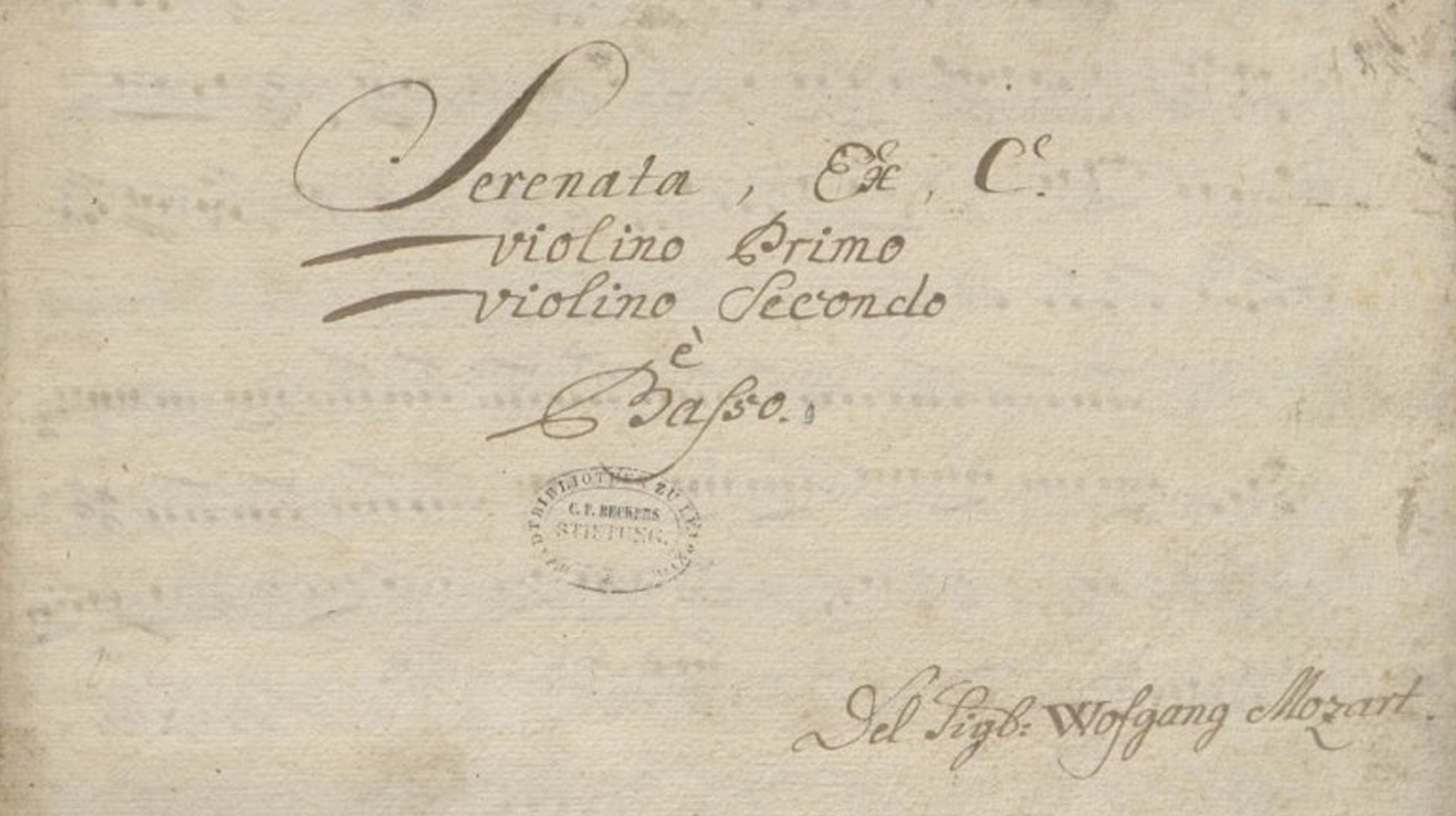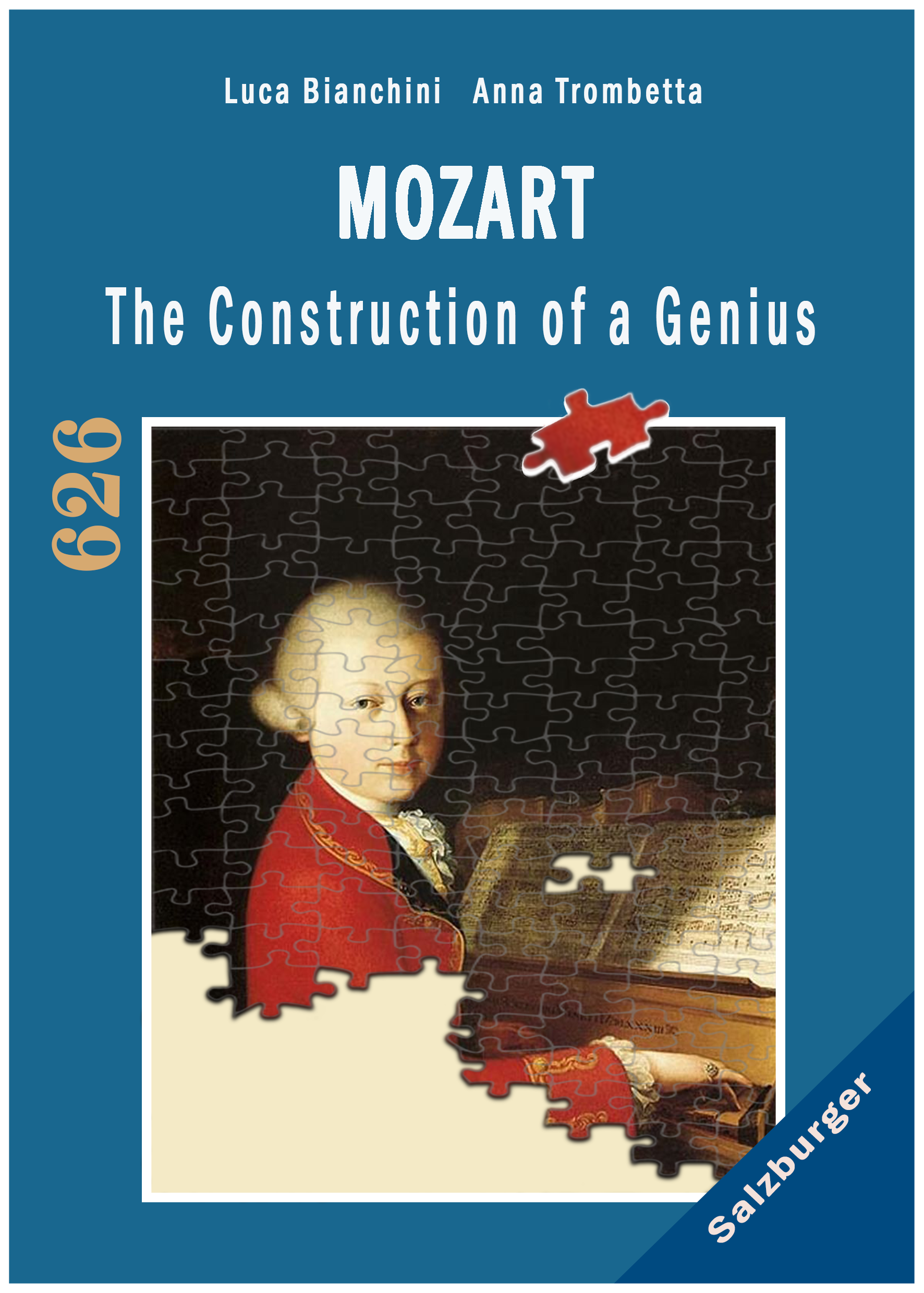Mozart’s Serenade? A New Discovery? Really?
A Controversial Finding in Leipzig Raises Questions About Mozart’s Authenticity
In Leipzig, what was thought to be a new autograph of Mozart turned out to be a questionable copy. Why are such rushed attributions so common for Mozart, and why is it so hard to correct them when proven false?
Mozart: The Construction of a Genius
This book offers a fresh and critical look at the life of Wolfgang Amadeus Mozart, challenging the myths that have surrounded him for centuries. We strip away the romanticised image of the “natural genius” and delve into the contradictions within Mozart’s extensive biographies. Backed by nearly 2,000 meticulously sourced citations, this work invites readers to explore a deeper, more complex understanding of Mozart. Perfect for those who wish to question the traditional narrative, this biography is a must-read for serious music lovers and historians.
"The trouble with fiction is that it makes too much sense, whereas reality never makes sense."
Aldous Huxley
Did Leipzig really uncover a new autograph of Mozart? Not quite. What they found was a copy, and even its dating is questionable. The discussions I’ve come across seem more like speculation, but repeating them doesn’t make them true.
At first glance, the title page might make you think it’s by Mozart, but the piece was actually written by an anonymous copyist about twenty years later—assuming that theory is even accurate. Looking at the title page, the supposed author is a certain “Wofgang” (without the L!).

How can we trust an attribution when the name itself is misspelled? For all we know, the music could have been written by his sister, his aunt, or perhaps even a close friend of Leopold. Essentially, anyone.
Without an autograph, a date, a place, or even the correct name, it was almost predictable that this would be quickly absorbed into the Köchel catalogue of Mozart’s works as another “authentic” piece. It’s fascinating to see how eagerly such attributions are made, especially for a figure as iconic as Mozart.
There’s never this kind of urgency when a work, once attributed to Mozart, turns out to have been written by someone else. In those cases, the opposite happens. Once a piece enters the catalogue, it rarely gets removed, even when the evidence clearly shows it’s a forgery.
You May Also Like
The Echo of the Pummerin Bell
The powerful resonance of the Pummerin bell in Vienna may have influenced Mozart’s compositions, particularly Sarastro’s arias in The Magic Flute.
The Hidden Influence of Joseph Boulogne, Chevalier de Saint-George
Joseph Boulogne, known as the “Black Mozart”, was shaping the future of music while Mozart was still struggling for recognition in Paris. But history has buried the significant influence Saint-George had on Mozart’s career, erasing his pioneering style from the narrative.
The Forgotten Viennese Quartets
Attributing Offertorium K.34 to Mozart is not just misleading, it reflects the careless methods used by 19th-century scholars to inflate his legacy. Without an autograph or solid evidence, this work should not be considered part of his output.”
Mozart’s Bassoon Concerto: A Question of Authorship
The Bassoon Concerto K.191 raises more questions than it answers. Long thought to have been composed for a Munich bassoonist, new evidence suggests Mozart had no clear performer in mind. The concerto’s disjointed movements and other dubious compositions attributed to Mozart add further complexity to his legacy
The Uncertain Origins of Mozart’s Early String Quartets
Mozart’s so-called “Milanese Quartets” (K.155, 158, and 159) have long been subject to debate, primarily due to their ambiguous instrumentation and structural weaknesses. Were these works part of a larger series of orchestral divertimenti, hastily repurposed as string quartets? The answer remains elusive, reflecting the young composer’s struggles to find his own voice.
Simplicity, Errors, and the Myth of Perfection
Mozart’s canons are not as complex as often claimed, with notable errors in K.553 and K.554, and the myth of “V’amo di cuore teneramente” K.348 being debunked.







